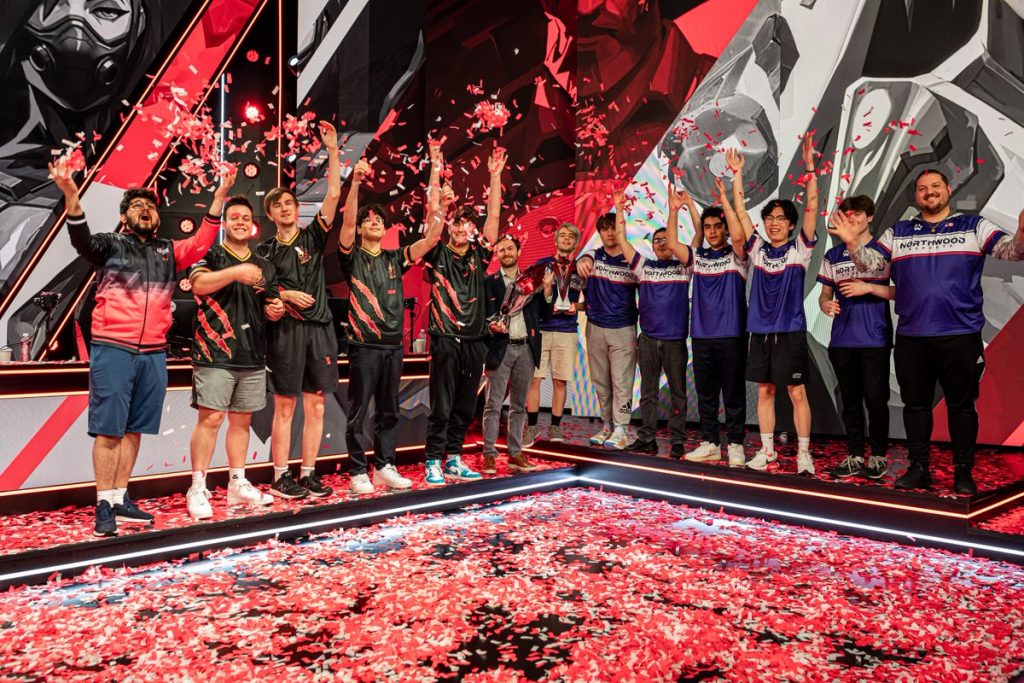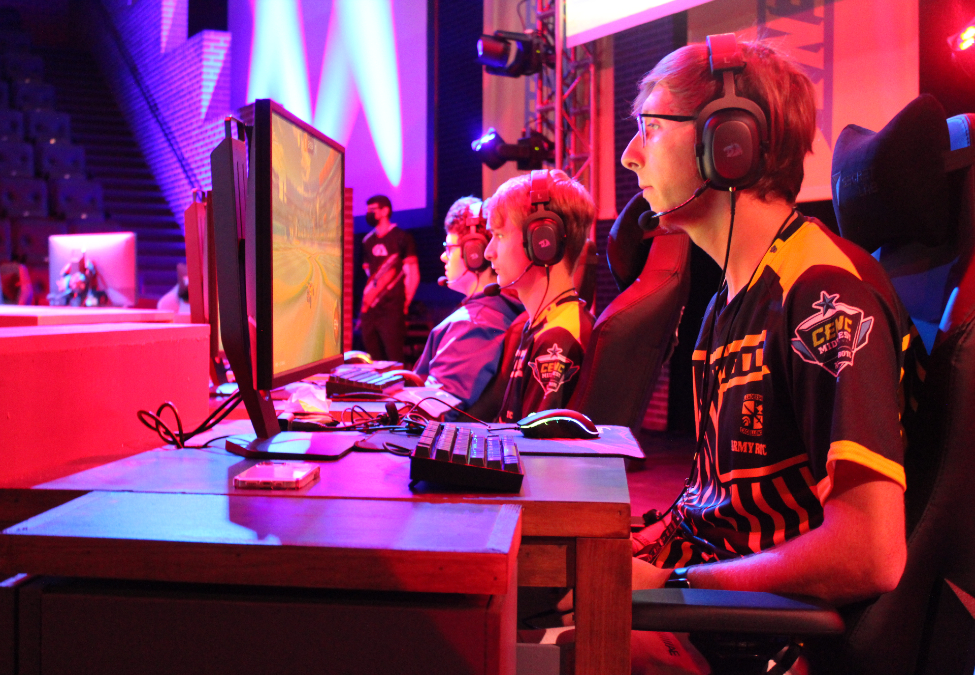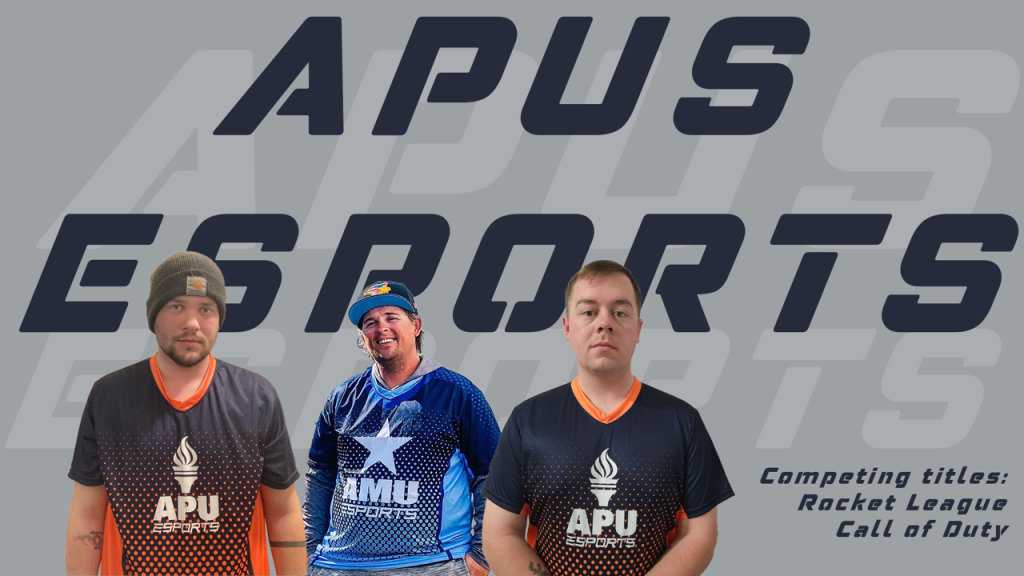
In the highly competitive world of collegiate sports in North America, if one performs well in basketball or football, there is a strong chance that they might “go pro” and compete in some of the nation’s top flight leagues. However, even though esports is increasingly catching up with ‘traditional’ sports, the collegiate path to professional play and jobs in the industry is not so clear yet.
To discuss the current situation in the collegiate esports scene, Esports Insider sat down with Craig Skilling, the Esports Coordinator for the American Public University System, which includes American Military University and American Public University. Skilling has a unique viewpoint on both esports and sports, having worked at NBA franchise Miami Heat, as well as several educational institutions in the US.
APUS recently created its first dedicated esports team, and its development is one of the priorities on Skilling’s list for 2024. Skilling had two predictions for this year. He thinks 2024 will be the year in which ‘multi-sport’ athletes that combine esports and regular sports are going to surface in the United States, and will have to make decisions whether they want to continue playing, for example, football or League of Legends. In addition, this year is probably going to see more college programmes introduce scholarships for esports, predicted Skilling.
Currently, APUS has rosters in two games: Rocket League and Call of Duty. The Rocket League team competes in the National Esports Collegiate Conference (NECC), and finished its first-ever split in fourth place. Interestingly, out of its four players, two are active in the Navy and Air Force, and one player is in the Army Reserves. In Call of Duty, the roster competes in the CXP League.
APUS is an online institution, which presents challenges with the rollout of APUS’ esports programme, both for Skilling and his students. Then again, online participation is in esports’ nature. “Once you build it, they will come”, joked Skilling and pointed at Discord and other platforms as saviours for students aiming to continue playing esports after school:
“We are in a unique position here at APUS where we have students from all over the world, a lot of them coming from a military background. There’s multiple ways that you can support a team virtually. We get them all together, there are practice schedules, they have their coach embedded with them, and it’s just up to us to support them with whatever they might need.”
Skilling added that his main goal is to be “the Nick Saban of esports”, alluding to one of the greatest football coaches in history, known for his recruitment of good players and knowledge. The idea for APUS esports is not just to compete, but to create a stable programme that will help them win championships, like Saban notably did with collegiate football teams.

But to do that will require a robust path to pro internally at the organisation. Skilling said that, over the course of the pandemic, the interest in collegiate esports at all levels, ranging from players themselves to management at schools has ramped up, resulting in much more attention on the industry right now.
This investment schools make into players therefore results in promoting their image and brand, and in the end returning monetary value to the schools and colleges themselves. According to Skilling, students can no longer be considered ‘amateurs’ when they start winning championships and substantial prize pools – which is different from traditional sports where one only becomes a professional after signing a professional contract. In esports, no contracts are needed to be “professional”.
In addition, being in school helps esports players develop more holistically, which is something that Skilling has a lot of experience in since his NBA days. With little data about what happens after esports careers are over — and amid ongoing discussions about the lack of safeguarding in esports — well-rounded development is particularly important.
“Students now have to understand what the next level, college, prepares you for, in terms of being a professional. The traditional student is going to truly benefit from going to college, building up their skill set. And then, if you’re amazing on your collegiate team, you have that opportunity to get an esports job, you’re prepared similar to that of a minor league team. That’s what they [the teams] are going to look for.”

Collegiate players are valuable — and not just to teams
Skilling said that during his talks with teams and organisations, their staff are interested in well-rounded students that, if not making the cut as a player, can make great esports marketers or account managers.
The big benefit in playing esports in college is the fact that players can continue their studies while also playing on a higher collegiate level, unlike traditional sports where players tend to leave school after just a year or two to pursue a sports career. Skilling said that, especially since APUS is an online institution, it allows students to both get their degree and play for the college at a high level.
The APUS esports players are currently enrolled in various degrees, including ones directly tied to esports, such as Esports Coaching and Athlete Development, but also others like Cybersecurity, Homeland Security, Computer Science and Business Administration. Skilling commented that the wide range of degrees goes to show that people with varying career goals are interested in competing for APUS, not just the ones pursuing esports careers.
Still, if a player drops out of college to play, for example, Call of Duty for the likes of FaZe Clan, Skilling says that colleges should keep track of those students and aim to have them back to complete their studies. He listed examples of NBA greats Steph Curry and Shaquile O’Neal returning to school, and pointed out that this should definitely be possible for the esports greats.
For the students competing in the APUS esports programme, Skilling pointed out that the geographical distances between them and the fact that the programme is remote can affect the overall experience. As a result, he wants to make sure that APUS has as level a playing field as possible — which he’s doing by, for example, helping players with their home setups and equipment, so they can reach the level of their competitors that practice from the same location every week.
For 2024, the APUS esports programme’s main goal is to field more teams and increase the chances of winning championships. The first new team will be in Apex Legends, with Skilling noting that the roster will be announced in March 2024.
Supported by American Public University System
